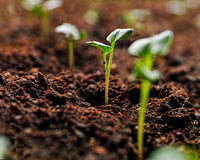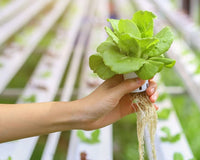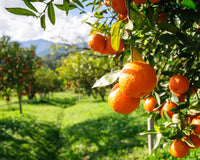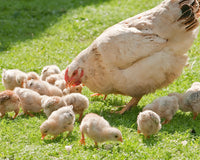Feeding and protecting your garden from pests and diseases during the cold month are much easier tasks when you use the right products. When selecting products for your winter garden there are many thins important to consider depending on what you are growing. Today we are exploring products to consider based on what is important to you and your winter garden.
Fertilizing
When transplanting produce in colder month it is best to do your first fertilizing three weeks later. Soil requirements are dependent on the produce. For example, lettuce prefers soil that is high in organic material with plenty of compost and a steady supply of nitrogen to keep it growing fast. Organic alfalfa meal or an organic slow-release fertilizer such as Superzyme 1-0-4, Promot MZM, or Promot Plus are fantastic solutions for fertilization without adding harsh chemicals to your lettuce garden.

Primary Plant Nutrients
For all winter produce, they all need the primary nutrients. While the amounts required may vary, each primary nutrient is necessary.
- Nitrogen: Nitrogen helps with promoting strong early growth in lettuce.
- Phosphorous: Phosphorous helps building healthy roots as well as with early maturity.
- Potassium: Potassium helps encourages root growth and increases resistance to diseases. Potassium is essential for flower and fruit growth.
Secondary Plant Nutrients
Secondary nutrients are nutrients needed based on the performance for the desired produce.
- Calcium: Calcium helps with plant growth by serving a key role of cell wall structure and must be present for the formation of new cells.
- Magnesium: Magnesium is a vital component of chlorophyll, the molecule responsible for giving many cool-season crops their green color.
- Sulfur: Sulfur serves as a constituent of three amino acids: cystine, methionine, and cysteine. Sulfur is essential for nodule formation.

Micronutrients
- Boron: Boron contributes to the flowering and ripening of the lettuce
- Iron: Iron is required for the formation of chlorophyll, which gives many cool-season crops their green color. Iron also serves as an activator of biochemical process such as cellular respiration and photosynthesis.
- Manganese: Manganese is a key factor in photosynthesis by assisting iron in chlorophyll formation.
- Zinc: Zinc is vital in several enzymes. For example, zinc controls the synthesis of indoleacetic acid, an important plant growth regulator.
- Copper: Copper influences numerous enzymatic processes and is a vital component in chlorophyll.
- Molybdenum: Molybdenum is a component of nitrate-reductase and nitrogenase enzymes. Without molybdenum, cool season crops cannot transform nitrate nitrogen into amino acids.
Pest Control and Disease Management

With the moisture that cold months bring, it is very important to water for signs of disease in the garden. The best way to combat disease is to have a great preventative product. Fosphite for example has multiple modes of action and works as an effective control of soil borne diseases. Fosphite is especially perfect for wet season planting in addition to its year-round protection.
There are cool-season crop pests such as aphids, caterpillars, spider mites, diamondback moths, and cabbage worms to be aware of. A large portion of fall and winter crops are from the brassica family, which prefer cooler weather. Identifying brassica crops common pests will help prevent infestations and total crop loss. Pest Out and BioRepel offer foliar application approaches to prevent and combat soft-bodied insect control such as whiteflies, mites, caterpillars, and worms.
Where to Shop
You can find any of these products here on the Safergro website. In addition to them, you'll find farm quality products at reasonable prices for all your growing needs. We are also always on standby to answer any of your gardening lawn care dilemmas. If we missed any of your questions, feel free to reach out to us on Instagram or Facebook.






